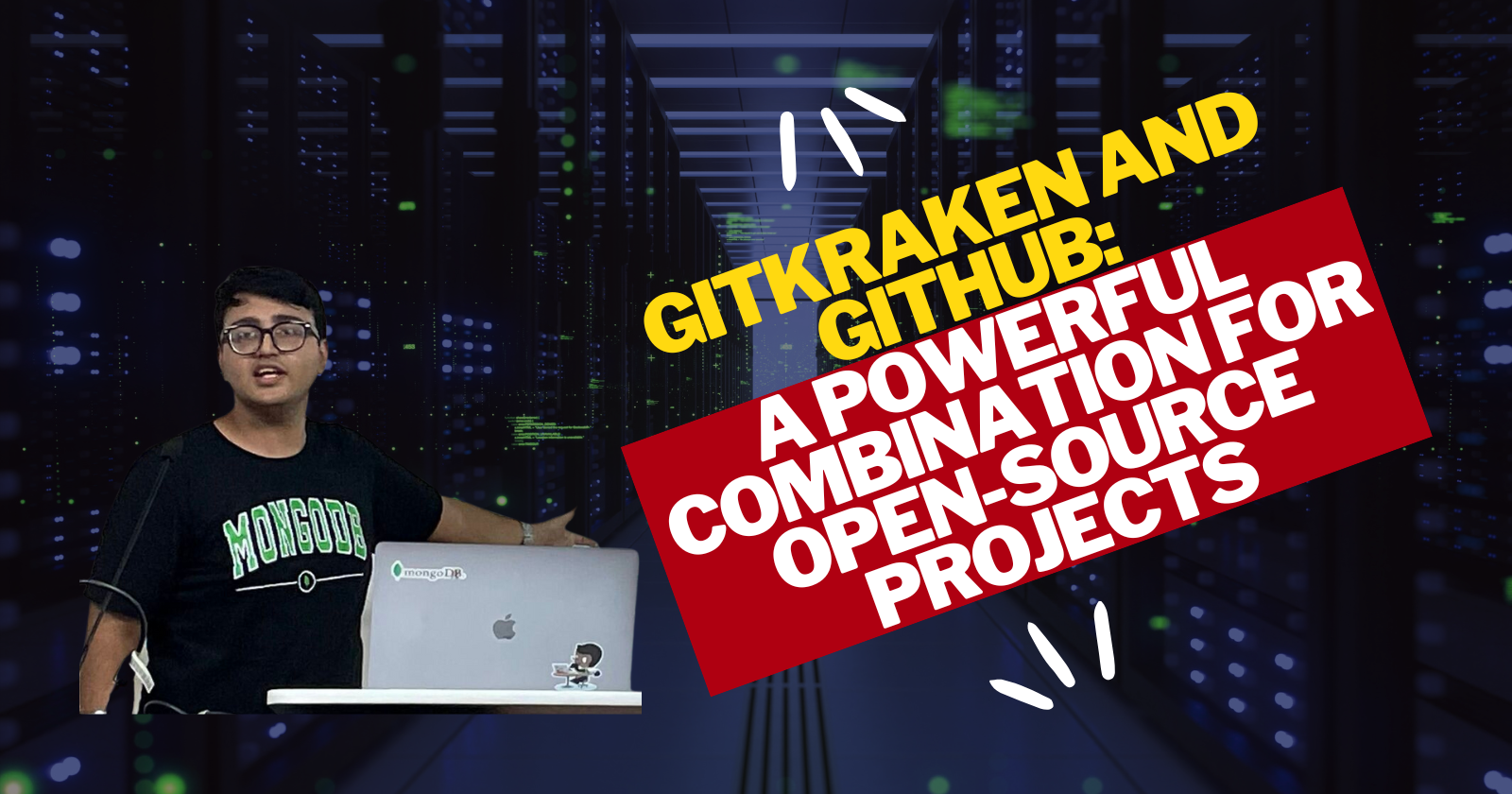GitKraken and GitHub: A Powerful Combination for Open-Source Projects
 Sanchit Khurana
Sanchit Khurana
Open-source projects are an important part of the software development ecosystem, providing a platform for developers to collaborate on projects and share their knowledge with others. However, managing open-source projects can be a challenge, especially when it comes to version control and collaboration. GitKraken and GitHub are two powerful tools that can help open-source developers overcome these challenges and streamline their workflows.
What is GitKraken?
GitKraken is a powerful graphical user interface (GUI) for Git, the most popular version control system used by developers around the world. GitKraken provides an intuitive and user-friendly interface that simplifies the Git workflow, making it easy to create, commit, and merge code changes.
One of the key features of GitKraken is its powerful merge conflict resolution tool. Merge conflicts can occur when two or more developers make changes to the same file, resulting in conflicts that need to be resolved before the code can be merged. GitKraken's merge conflict resolution tool simplifies this process, providing an intuitive interface that makes it easy to resolve conflicts and keep the codebase in sync.
What is GitHub?
GitHub is a web-based platform that provides a range of tools and features for hosting and managing software development projects. GitHub is widely used by developers around the world, with over 65 million repositories hosted on the platform.
GitHub provides a range of features that make it easy to collaborate on software projects. These features include pull requests, which allow developers to propose changes to the codebase and get feedback from others, and issues, which can be used to track bugs and feature requests.
Using GitKraken and GitHub Together
When used together, GitKraken and GitHub provide a powerful platform for managing open-source projects. The combination of GitKraken's intuitive GUI and GitHub's collaboration features makes it easy to collaborate on projects, manage code changes, and keep the codebase in sync.
One of the key benefits of using GitKraken and GitHub together is the ability to streamline the code review process. GitKraken's merge conflict resolution tool makes it easy to resolve conflicts and merge code changes, while GitHub's pull request feature provides an intuitive interface for reviewing and commenting on code changes.
Here's an example of how GitKraken and GitHub can be used together:
Clone the repository: Start by cloning the repository from GitHub to your local machine using GitKraken.
Make changes: Make changes to the codebase using GitKraken's intuitive interface.
Commit changes: Commit your changes to the local repository using GitKraken.
Push changes: Push your changes to the remote repository on GitHub using GitKraken.
Create a pull request: Create a pull request on GitHub to propose your changes to the project maintainer.
Review and merge changes: The project maintainer can review your changes using GitHub's pull request feature and merge them into the codebase if they are approved.
Conclusion
Open-source projects are an important part of the software development ecosystem, but managing them can be a challenge. GitKraken and GitHub are two powerful tools that can help open-source developers overcome these challenges and streamline their workflows. When used together, GitKraken and GitHub provide a powerful platform for managing open-source projects, making it easy to collaborate on projects, manage code changes, and keep the codebase in sync. If you're an open-source developer, consider using GitKraken and GitHub to streamline your workflow and make collaboration easier.
Subscribe to my newsletter
Read articles from Sanchit Khurana directly inside your inbox. Subscribe to the newsletter, and don't miss out.
Written by

Sanchit Khurana
Sanchit Khurana
Building and Scaling Communities 🚀 | DevRel | Microsoft Certfied Trainer (MCT)